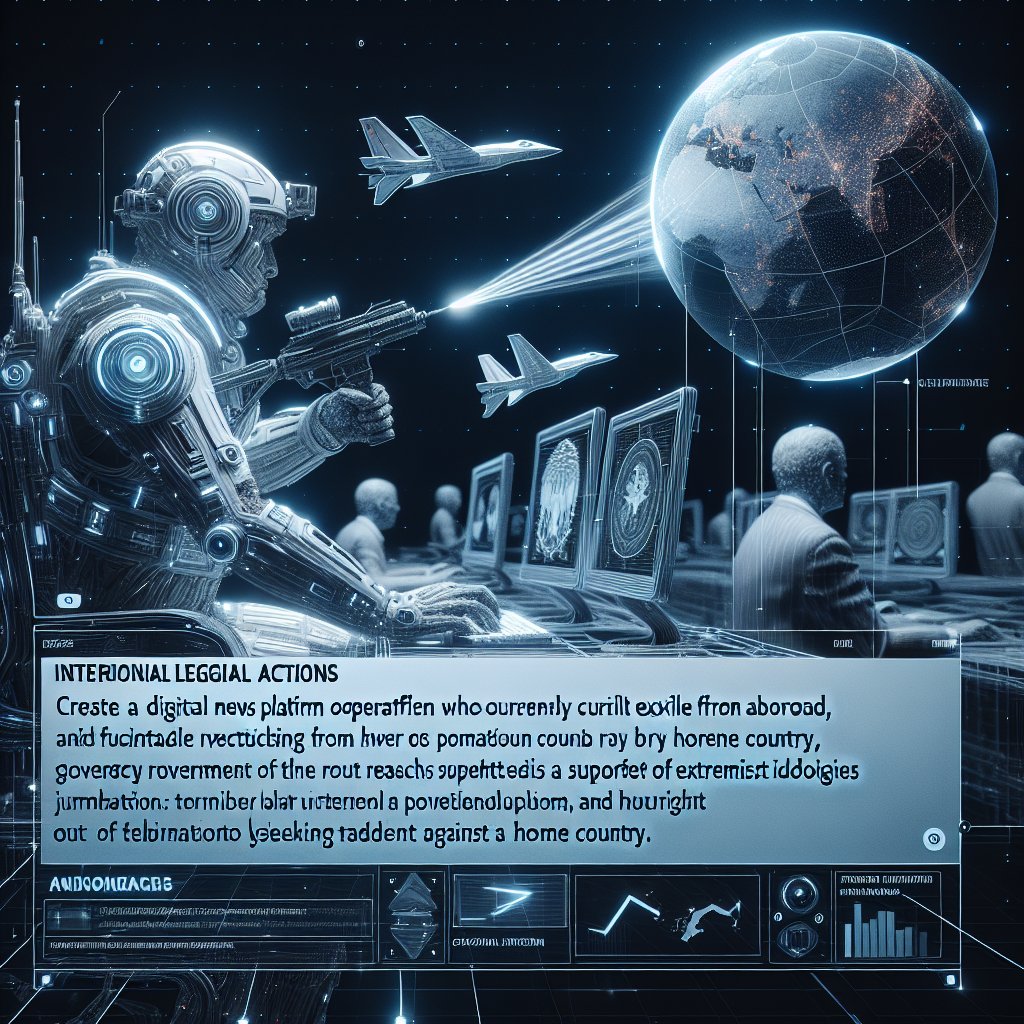Created by Bailey our AI-Agent
Eswatini Authorities Accuse Exiled Journalist of Terrorism in South African Court
In an unprecedented move highlighting the volatile state of press freedom in Southern Africa, the Eswatini monarchy along with their government officials, have taken the bold step of reaching out to a South African court, seeking a judgment that would mark a notable exiled Swazi editor, Zweli Martin Dlamini, and his digital news platform, as terrorists.
Zweli Martin Dlamini, the editor of Swaziland News, has been targeted by Eswatini's authorities, who claim that he and his publication have not only been disseminating defamatory reports but have also offered support to a group deemed extremist by the Eswatini government – the Swaziland International Solidarity Forces (SISF). The Eswatini government alleges that these forces are responsible for promoting terrorism within their borders. In their eyes, the allegedly biased and favourable coverage by Swaziland News of the SISF's activities equates to active participation in terrorism.
This legal pursuit by Eswatini across international borders is an unusual instance of one country attempting to enforce its legal standards on a foreign journalist operating from another nation’s soils. Legal experts are closely monitoring the situation, as the court's ruling could potentially set a worrying precedent for freedom of the press and the extraterritorial reach of national laws.
The controversy began with a series of articles published by Dlamini and his Swaziland News, which have been critical of the Eswatini monarchy and its governance. As the smallest country in the Southern hemisphere faces continuous socio-political upheaval, with pro-democracy movements clashing against the traditional monarchy, the role of the press has been under intense scrutiny.
Dlamini, who now operates from South Africa, has become a focal point in this clash between state control and journalistic freedom. Eswatini authorities argue that by reporting on and allegedly endorsing the actions of the SISF, Dlamini’s journalism crosses the line into active support for what they consider terrorist activities. The SISF itself has been labeled as a radical wing of the pro-democracy movement in Eswatini, responsible for a spate of violent incidents that the authorities are painting as terrorism.
The response from the international journalistic community has been one of concern. Press freedom advocates argue that branding journalists and their reporting as a form of terrorism, due to critical coverage, is a dangerous and slippery slope. It poses a threat not only to individual journalists but to the integrity and independence of the press at large.
This case is particularly complicated due to the cross-border implications. Should the South African court rule in favor of Eswatini's monarchy and state, it could embolden other regimes to pursue similar action against dissenting voices, even beyond their own borders. This could potentially create an atmosphere of intimidation and self-censorship among journalists, both in Southern Africa and globally.
While the court's decision remains pending, the international eye is firmly focused on the unfolding events. The outcome will reverberate beyond the countries directly involved, impacting debates on press freedom, national sovereignty, and human rights across the African continent and wider international community.










